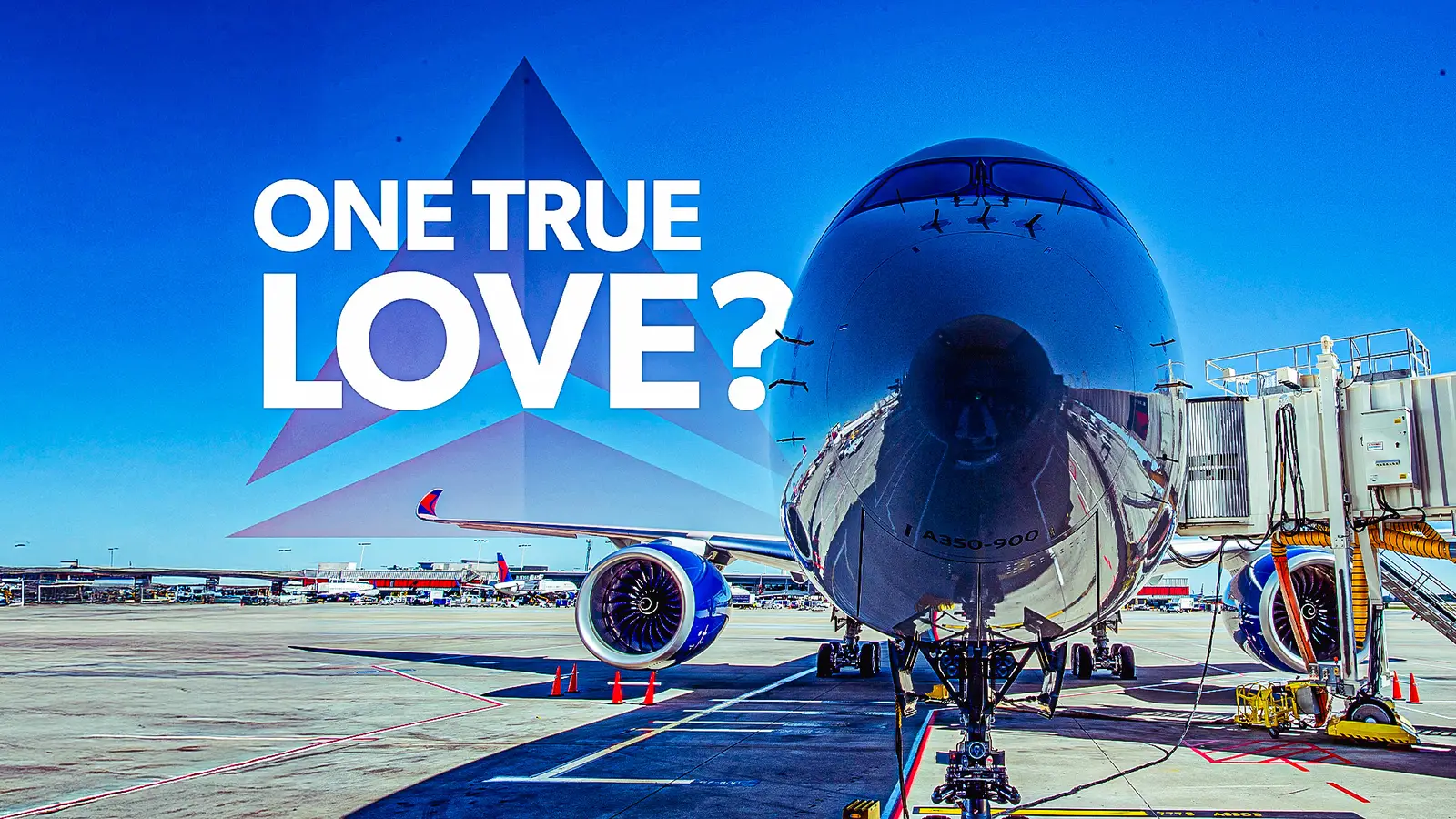
Delta Air Lines has a long history of carefully selecting aircraft that meet both operational and passenger needs. Over the past decade, no aircraft has embodied this strategy more than the Airbus A350. Delta introduced the A350 to replace the Boeing 747, marking a significant milestone for the airline. The company has not only embraced this aircraft but has also doubled down on it with additional orders and cabin innovations that demonstrate why the A350 is central to its future.
One of the main reasons Delta loves the Airbus A350 is that it aligns perfectly with both its business goals and its customer focus. The aircraft is modern, reliable, and built to deliver efficiency while keeping passengers comfortable on long flights. For example, the A350 allows Delta to offer features like quieter cabins, fresher air, and more seating options that appeal to both business and leisure travelers. This combination of performance and passenger satisfaction makes the A350 not just a smart purchase but also a symbol of Delta’s commitment to staying ahead in global aviation.
The Airbus A350 Becomes Delta’s Flagship Carrier
The Airbus A350 became Delta’s flagship aircraft in 2017. The airline took delivery of its first A350-900 on July 13 of that year, making it the first North American operator of the type. This aircraft was introduced to replace the iconic Boeing 747, which was being retired due to age and inefficiency. By selecting the A350 as its new flagship, Delta highlighted its preference for an aircraft that delivers superior efficiency, comfort, and flexibility compared to the older generation it replaced.
The launch of the A350 allowed Delta to roll out a groundbreaking innovation in passenger experience. The aircraft introduced the Delta One Suite, the world’s first all-suite business class cabin with full-height doors on every seat. This product gave travelers an unprecedented level of privacy in business class. It also positioned Delta as a market leader, using the A350 to offer something truly new in the airline industry.
Alongside the premium Delta One Suite, the A350 was also the first Delta aircraft to include a dedicated premium economy cabin. Known as Premium Select, this section featured 48 seats with more width, greater recline, and slide-out footrests. The addition responded to customer demand for a middle option between economy and business. The A350’s flexible cabin design made it the ideal platform for Delta to test and expand this offering.
Fuel Efficiency And Environmental Benefits
Another reason Delta favors the A350 is its fuel efficiency. In 2023, the airline confirmed an order for 20 Airbus A350-1000s, noting that the model is more than 20 percent more fuel efficient than the older jets it will replace. For Delta, this efficiency means lower operating costs, reduced emissions, and long-term alignment with sustainability goals. The A350 supports both environmental responsibility and financial discipline, making it a perfect fit for Delta’s fleet strategy.
The A350-1000 also strengthens Delta’s premium market presence. CEO Ed Bastian has called it the largest and most capable aircraft in Delta’s fleet. It will feature expanded premium cabins, increased cargo space, and more advanced amenities than its predecessor. This upgrade ensures Delta can continue offering a top-tier product on the most competitive international routes.
Fleet size also shows Delta’s love for the A350. As of 2024, the airline already operates 36 A350-900s and has 20 A350-1000s on order. This will bring the total fleet to more than 60 by the end of the decade, cementing the aircraft as the backbone of its long-haul operations. Such a commitment demonstrates Delta’s long-term confidence in the A350 family.
Passenger Comfort Front of Mind
Passenger comfort plays a major role in the A350’s success at Delta. The aircraft offers large windows, quieter engines, improved humidity, and better cabin pressurization. Delta has equipped it with in-seat power, fast WiFi, and over 1,000 hours of Delta Studio entertainment. These features give customers a more enjoyable experience, setting Delta apart in a competitive marketplace.
From a technical standpoint, the A350 is built with advanced materials that align with Delta’s goals. The fuselage is made of carbon-fiber reinforced plastic, which reduces weight while increasing durability. The aircraft also features next-generation aerodynamics and efficient Rolls-Royce engines. These factors lower maintenance costs while enhancing operational performance, and Delta benefits from this combination on long-haul international flights.
Delta also gains extra comfort advantages with the A350 that many passengers notice right away. This helps reduce the cramped feeling some jets have. The cabin pressure stays lower, so passengers generally feel less fatigued. Better humidity and a quieter environment make flight times—especially over many hours—feel easier, not just for business class travelers but for everyone in the main cabin. All of these small but real perks help reinforce Delta’s choice of the A350 as a top aircraft for passenger comfort.
Expanding Delta’s Global Reach
The A350 also enhances Delta’s ability to expand its network. The aircraft has the range and performance to connect US hubs with distant international destinations. With the A350-1000 on the way, Delta will be able to fly longer routes with more passengers, further strengthening its global reach. This makes the A350 not just a replacement aircraft but a growth enabler for Delta’s network strategy.
Another way the A350 benefits Delta is through its ability to operate more efficiently across varied markets. The aircraft is flexible enough to serve both high-demand international hubs and thinner long-haul routes where older planes would not have been cost-effective. For example, Delta can schedule the A350 on flights that need extra cargo space or adjust the cabin design to match the mix of business and leisure travelers. This flexibility means the aircraft does more than connect cities; it helps Delta get the most out of its fleet across different regions. By utilizing the A350 in this manner, Delta enhances its competitiveness against other global airlines.
For Delta, the A350 also represents brand differentiation. The introduction of the Delta One Suite and Premium Select highlighted Delta as a pioneer in passenger experience. These products attracted both business travelers and leisure passengers seeking more comfort. The A350 became a visible symbol of Delta’s brand values of innovation and customer focus.
Strong Commitment To Airbus
Delta’s strong partnership with Airbus reinforces this loyalty. The airline already operates nearly 500 Airbus aircraft, including the A220, A320 family, and A330 models. With another 200 Airbus planes on order, Delta clearly values its relationship with Airbus as a manufacturer. The A350 sits at the top of this partnership, representing the premium end of a fleet that is increasingly Airbus-centric.
Market competitiveness is another factor that drives Delta’s reliance on the A350. With airlines around the world upgrading their premium cabins, Delta cannot afford to fall behind. The A350-1000 will be delivered with upgraded Delta One Suites and refreshed economy cabins to meet these evolving standards. This ensures Delta continues to attract high-yield customers while offering value to leisure passengers.
The A350’s flexibility is important in today’s dynamic market. Unlike older aircraft that were designed for one type of mission, the A350 can be configured for both high-premium and higher-density layouts. Delta has used this flexibility to adapt to different routes and passenger demands. It shows why the airline values the A350 as more than just an airplane but as a strategic tool.
According to this Reddit thread, rumors swirl about Delta possibly adding the Boeing 787-10 Dreamliner. The airline’s A350 investment speaks volumes. Discussions in aviation forums suggest some insiders believe the 787 may eventually join Delta’s fleet. However, most reports indicate that Delta’s strong reliance on the A350 means Boeing faces an uphill battle. The sheer scale of Delta’s Airbus orders reflects confidence in the A350 rather than a need to diversify with Boeing.
Aviation industry reports have echoed this sentiment. While Simple Flying has noted Delta may be close to finalizing a 787-10 order, the timeline extends to late 2025 or early 2026. This suggests that if Boeing does enter the fleet, it will complement rather than replace the A350. The A350 will remain the centerpiece of Delta’s long-haul operations, highlighting why Delta continues to love the aircraft so much.
Adequate Cargo Space Increases Revenue
The A350 also provides Delta with strong cargo capabilities. In addition to passenger service, the aircraft can carry a significant volume of belly cargo. This enhances revenue potential, especially on long-haul routes where cargo demand remains high. Delta’s ability to balance both passenger and freight income on the A350 adds another reason for its preference.
Finally, the A350 reflects Delta’s balance between tradition and innovation. It replaced the legendary 747, bringing in modern comforts, efficiency, and sustainability. By ordering more A350-1000s and continuing to refine its cabin designs, Delta demonstrates that the aircraft is not just part of its fleet—it is part of its identity. For Delta Air Lines, the Airbus A350 is not simply a tool but a symbol of progress and pride.



